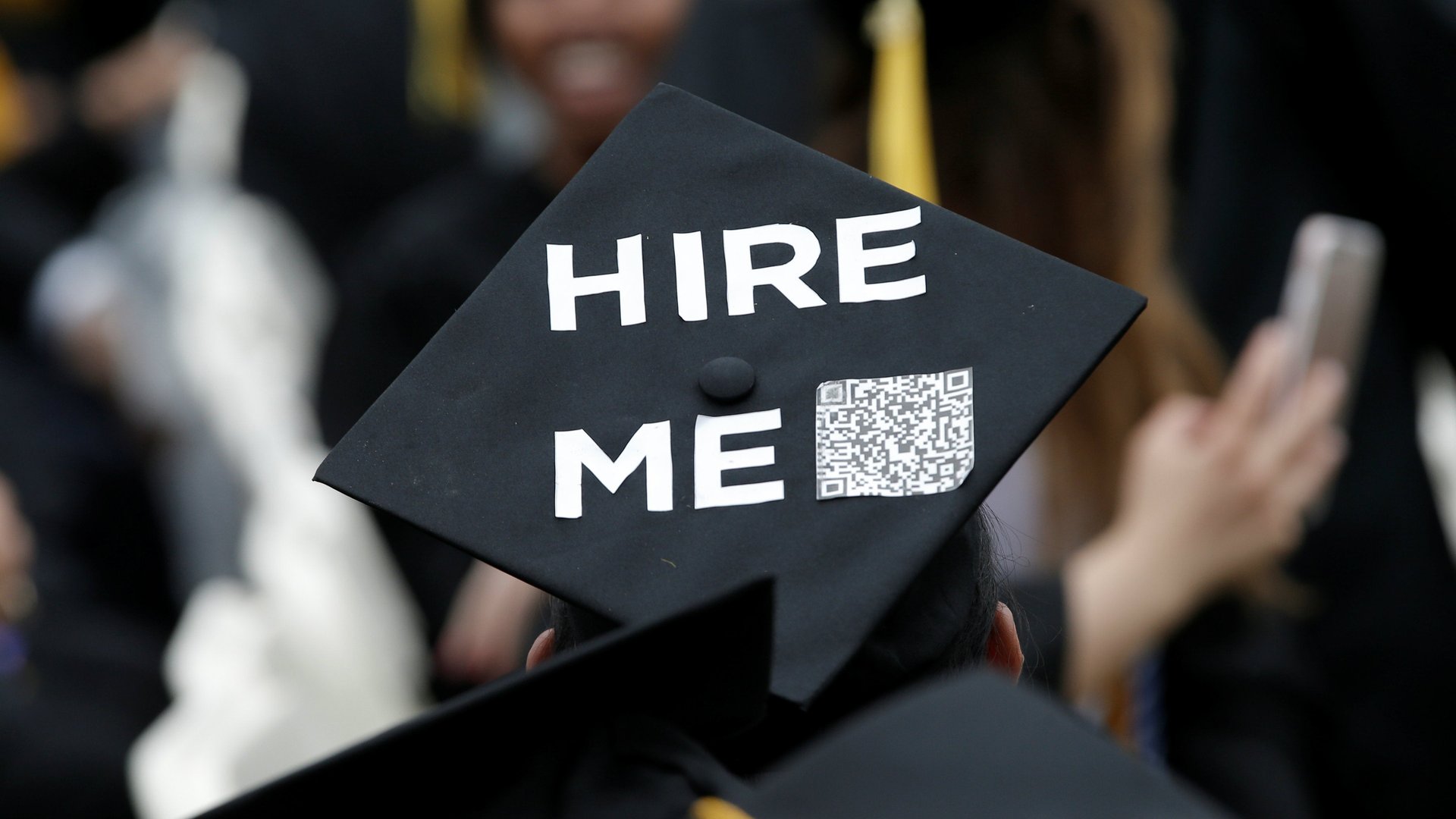How universities are starting to prepare students for the gig economy
In 2012, Diane Mulcahy, a lecturer in the MBA program at Babson College in Massachusetts, created a course called “Entrepreneurship and the Gig Economy.” The idea was to teach MBA students how to get contract work, line up side hustles, negotiate fees, and market themselves in a new kind of labor market, where the flexibility afforded to freelancers, part-timers, and independent contractors was suddenly being embraced by a new generation of workers.


In 2012, Diane Mulcahy, a lecturer in the MBA program at Babson College in Massachusetts, created a course called “Entrepreneurship and the Gig Economy.” The idea was to teach MBA students how to get contract work, line up side hustles, negotiate fees, and market themselves in a new kind of labor market, where the flexibility afforded to freelancers, part-timers, and independent contractors was suddenly being embraced by a new generation of workers.
Babson was early to spot the gig trend—Uber was barely a four-year-old startup, and Mulcahy knew of no other MBA course in the US like the one she had developed. But other universities have since been catching up.
In 2018, the University of Michigan’s Ross School of Business added an undergraduate senior capstone class, “Thriving in the New World of Work,” to teach students how to navigate the workplace and their careers, using assessments to figure out their strengths, values, and passions in the new work environment, how to be resourceful, and how to navigate uncertainty. Susan Ashford, a professor of management and organizations at Ross, explains there was a need, noting that students are placing increasing importance on finding a job that fits their lifestyle.
Though liberal arts degrees are sometimes seen as “not real world” degrees, Rebecca Gill wants to change that. Earlier this year, the Wake Forest University associate professor of communications started the course “Communication in Entrepreneurial Settings,”which explores various types of work situations including freelancing, mobile work, co-working, and traditional gigs (such as being an Uber driver or Airbnb host), as well as how to communicate, navigate, and network in a variety of scenarios. In addition to studying the history of the gig economy, students are taught to understand and interpret the needs of workers and of companies in the gig economy. They learn how to evaluate potential gigs and say “no” to work that may not be beneficial, and how to use communication tools such as Slack to help facilitate work, says Gill. Students who take her course come from various majors including communications, marketing, sales, economics, sociology, and psychology.
Although the course offers a fairly uniform education in the gig economy, everyone will have a different experience in it, says Gill, because gig work these days runs the gamut. Students at Wake Forest, a private liberal arts school in North Carolina, won’t necessarily be driving for Uber—but they may be in a position to study the field and make the work better, whether they’re leading teams at gig-economy companies, overseeing gig workers, or organizing unions, Gill says.
To be sure, the number of universities offering courses and advice on the gig economy remains small. But the need seems rather great: according to a survey by the freelancing platform UpWork, 89% of freelancers wish educators better prepared them for this type of work.
Placement centers are catching on, too
At Wellesley and University of Texas-Austin, students can now get advice on gig work at the schools’ career services centers. Traditionally, these centers were designed to prepare students to land jobs at big corporations; if you wanted to work at a nonprofit or smaller startup, you were mostly on your own. But that’s shifting now, says Michigan’s Ashford.
The relatively new interest in gig work isn’t just related to students’ post-graduation plans. College students have always been looking for ways to make extra money while in school, but in the past couple of years, more students have been approaching their career coaches on how to find jobs that don’t interfere with their class schedules, says Tatem Oldham, interim director of the University of Texas-Austin’s liberal arts career services center. The center typically suggests driving for ride-hailing companies or working for delivery services like Instacart. “It’s just becoming more and more normal for students to choose” these kinds of jobs while they’re still in school, Oldham says.
Of course, gig opportunities are nothing new for students in many creative fields. In music and the arts, freelancing has long been the nature of the work—and some schools have helped to facilitate that. For instance, since 2012, DePaul University’s music department has helped student musicians get hired for occasions like wedding ceremonies and private parties in the Chicago area.
But now that gig work has reached other industries, catalyzed by technology that makes it far simpler for companies and contractors to find one another, Babson’s Mulcahy says she wants her students to know they are going to face a very different kind of workforce than what their parents faced.
“They learn how to define their own version of success,” says Mulcahy. “I think one of the things that is really easy to do is default into a version of professional and personal success that everybody else defines.”
Plenty of students remain interested in pursuing traditional, full-time jobs with a steady employer; the present realities of gig work ensure that it clearly isn’t for everyone. But schools that are thinking about the alternatives now are helping to shape the perception of freelancing and gig work in the future.